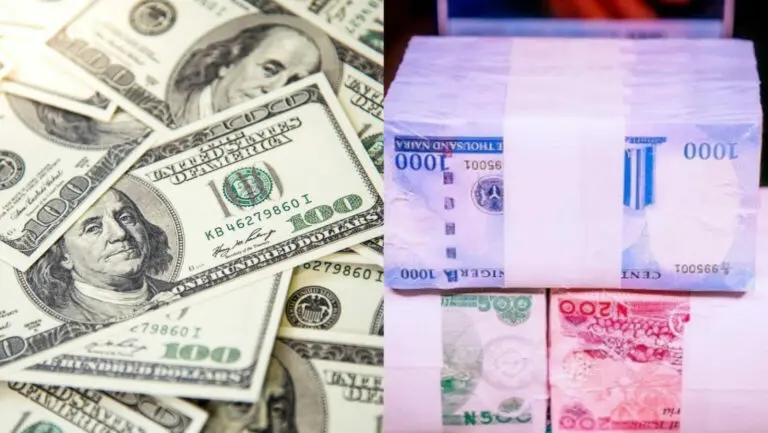
The exchange rate between the naira and the dollar plunged to a record low N983/$1 at the black market based on quotes received by CN on Wednesday as currency traders said there no dollar to sell.
This represents a 2.93% drop when compared with the N955/$1 that it traded the previous day as the foreign exchange crisis in the country continues unabated.
This also shows a substantial depreciation from the N950/$1 that it traded last week as the Central Bank of Nigeria (CBN) appears to be still struggling to stabilize the foreign exchange market despite its various policy pronouncements.
Recall that in mid-August, the dollar was quoted as low as N955/$1, stoking fears among investors that the exchange rate might plummet to N1000/$1. This, however, appreciated at some point to N840/$1 after the apex bank warned speculators about potential major losses due to the policies it hopes to introduce.
In related news, trading on the official I&E window on September 20 witnessed the exchange rate between the naira and the dollar settling at N776.60/$1, a drop from N773.98/$1 the previous day. The intra-day high soared to N799.9/$1, whereas the intra-day low dipped to N720/$1.
Data from FMDQ Securities Exchange, a platform that oversees official FX trading in Nigeria, shows that a total of $71.01 million was traded at the I & E window, Nigeria’s official trading window.
Currency tracking platform AbokiFX also captured the exchange rate trades at N980/$1 on Wednesday.
A top official of the Association of Bureau De Change Operators of Nigeria (ABCON) who did not want to be mentioned said that the forex market is currently in disarray as most of the licensed operators do not have dollars to sell and as such out of business.
He said that if there is dollar available to sell or buy, he might not even do the transaction because he does not know what to do, adding that he is confused as a licensed bureau de change operator
Going further he said,
Experts and currency traders have attributed the crisis in the forex market to scarcity of dollars and the surge in demand.
The Tinubu administration had indicated its resolve to tackle the rapid depreciation of the exchange rate, bolstered by the central bank’s commitment to intervene.
In August the acting CBN Governor had warned speculators of losses following plans aimed at stabilizing the naira.
Furthermore, the government publicized that the NNPC had secured a deal to borrow $3.5 billion, funds earmarked to boost supply amidst escalating demand pressures. Such measures buoyed the local currency, hinting that the black market premium over the official I&E Window might shrink to a mere 5%, a scenario welcomed by the market.
Yet, recent insights from JP Morgan revealed that as of December 2022, Nigeria’s central bank possessed net reserves amounting to approximately $3.7 billion and Flitch ratings which indicated that the current external reserves could be lower than expected.
The disclosures rattled analysts, and the exact cause behind the naira’s depreciation remains nebulous.
The Federal Inland Revenue Service (FIRS) has begun its recruitment exercise for experienced professionals to…
Primate Elijah Ayodele Unveils 94-Page Prophecy for 2025, Makes Striking Predictions About Nigeria’s Political and…
The Senior Special Assistant to President Bola Tinubu on Community Engagement (North Central), Abiodun Essiet,…
The Minister of Information and National Orientation, Mohammed Idris, has warned politicians against linking stampedes…
Tobi Adegboyega, founder of the Salvation Proclaimers Anointed Church (SPAC Nation), has stated that he…
The Independent Petroleum Marketers Association of Nigeria has said that petrol is going to sell…